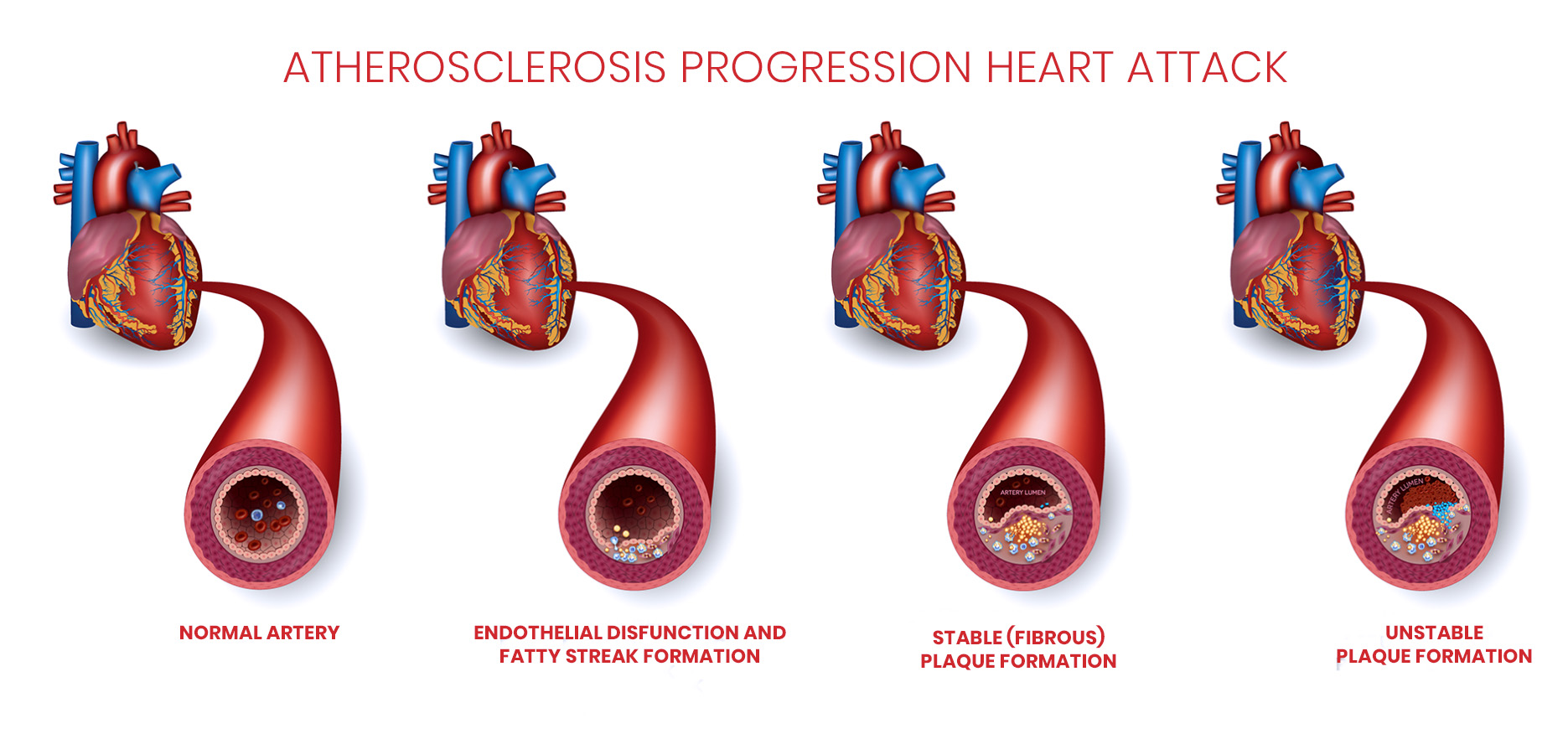Cardiovascular disease (CVD) is a general term for a group of disorders of the heart and blood vessels. Some of the most common forms of cardiovascular disease include high blood pressure, coronary artery disease, stroke, or arrhythmias. According to the World Health Organisation, CVD results in more than 17 million deaths worldwide each year.
Cardiovascular disease can occur when the arteries that supply blood and oxygen to the heart muscle and other organs become blocked with fatty material called plaque. As of today, coronary artery disease is the most common form of cardiovascular disease.
In the United States alone, more than 30 million Americans have some form of cardiovascular disease. But thanks to many studies and researches involving thousands of patients, professionals have identified certain factors that contribute to a person’s chances of developing heart disease. These are called risk factors.
Risk factors fall into two broad categories:
- Major risk factors – These are factors that significantly increase the risk of heart and blood vessel disease.
- Contributing risk factors – These factors are associated with an increased risk of heart disease, but their significance and prevalence have not been determined.
As for The first aid course Melbourne, a first aid course provider. Some risk factors can be modified and improved, while some others cannot. But by controlling as many risk factors as possible through lifestyle changes and medications, you can reduce your risk of developing cardiovascular disease.
Major Risk Factors
High Blood Pressure (Hypertension). High blood pressure increases your risk of developing heart disease and the occurrence of stroke. Blood pressure varies with your physical activity and age, but a normal reading for a healthy adult should be at least 120/80.
High Cholesterol. One of the major risk factors for cardiovascular disease is having high blood cholesterol. Cholesterol, a waxy fat-like substance present in your blood, can be found in all the cells of your body. Extra cholesterol enters your body when you eat farm-produced foods such as meats, eggs, and dairy products. You can also get it from foods that are high in saturated fat.
Diabetes. People with diabetes are more likely to have a higher risk for heart disease. High blood glucose from having diabetes can damage your blood vessels and the nerves that control the heart functions. If you or someone you know has diabetes, you should already be under a doctor’s care. Good blood sugar control can significantly lessen your risk. If you have diabetes concerns, best to see your doctor for tests.
Obesity and Overweight. Excessive weight can lead to high cholesterol levels, high blood pressure, and diabetes which are all major risk factors for heart disease.
Smoking. Cigarette and tobacco smoking does not only increase your risk of lung cancer but also increases the risk of heart disease. It can also lead to peripheral vascular disease or disease in the vessels that supply blood to the arms and legs.
Smoking increases the heart rate, tightens major arteries, and creates irregularities in all of the heart’s normal functions. All of these conditions make the heart work harder. Smoking also raises blood pressure which is another major risk factor for heart disease.
Nicotine, the main active agent in cigarettes, is harmful to your heart in many ways. Other cigarette compounds like tar and carbon monoxide are also harmful to the heart.
Physical Inactivity. People who are not involved in any physical activity have a greater risk of having a heart attack. Physical activities burn up calories that help maintain a healthy weight. It also helps control cholesterol levels, diabetes, and may lower blood pressure. The main benefit of exercising is it strengthens the heart muscle and makes the arteries more flexible.
Genetics. The cardiovascular disease tends to run in families. If you have parents, siblings, or a close relative with a heart or circulatory problem, you are at greater risk for heart disease. Other risk factors include high blood pressure, diabetes, and obesity can also pass on from one generation to another.
Age. Old age is a risk factor for cardiovascular disease. About 4 out of 5 deaths for people older than 65 are due to heart disease. As we age, our hearts tend to grow old with us, and eventually get weaker. The heart’s walls may thicken, and arteries may become stiff ad hard. These changes make it difficult for the heart to pump blood throughout the body.
age.
Contributing Factors
Stress. Stress is a high contributing risk factor for cardiovascular disease. Stressful situations increase your heart rate and blood pressure, thus, raising your heart’s need for oxygen. The sudden increase in oxygen demand can lead to ischemia or insufficient oxygen-rich blood getting to the tissues. It can also result in angina or chest pain.
Birth control pills. Early types of birth control pills have high levels of estrogen and progestin. Taking these pills can increase the risk of having heart disease and stroke.
Alcohol. Drinking more than a moderate amount of alcohol can lead to heart-related problems such as high blood pressure, stroke, and irregular heartbeat. It can also lead to cardiomyopathy or the disease of the heart muscle.
The First Aid Course Sydney suggests that you should know whether you are at risk of having cardiovascular disease, consider the following factors. See a professional and ask them to turn it into a percentage score. Your doctor will then calculate your heart and stroke risk.
If your score is more than 15%, you have a high risk of getting cardiovascular disease in the next five years. If your risk score is lower than 10%, you have a low-risk of getting the disease in the next five years.
Next Steps
If you are at high risk, ask your doctor for medical advice and strictly follow it.
If you are at moderate risk, do regular measures at least twice a year. Follow the doctor’s tips and advice for reducing your percentage score.
If you are at low risk, do things that will maintain your healthy lifestyle. Ensure that your risk is kept low, and ask your doctor to measure your risk every year.
The American Heart Association recommends focusing on stroke heart disease prevention at its early stages. To begin, assess your risk factors and apply lifestyle changes to keep them low. It is never too late nor too early to improve your heart health.
Knowledge is power. Understand the risks you face for cardiovascular disease and learn first aid for different heart conditions. The sooner you identify and manage those factors, the better your chances of having a heart-healthy life.
For more blogs : Visit www.advancedcvcenter.com/blog/



